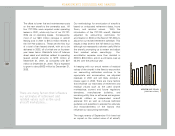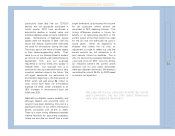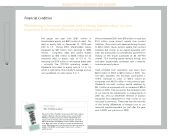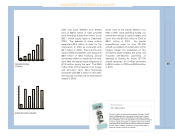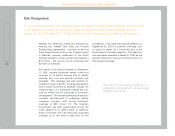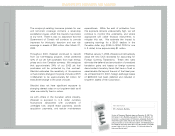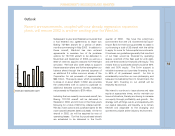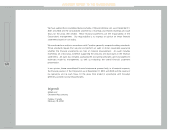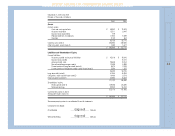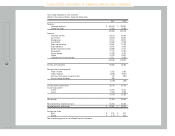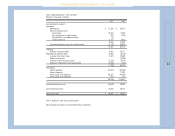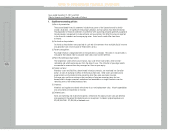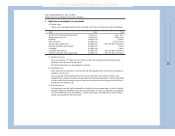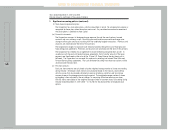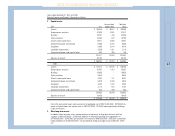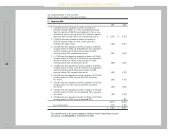Westjet 2001 Annual Report Download - page 40
Download and view the complete annual report
Please find page 40 of the 2001 Westjet annual report below. You can navigate through the pages in the report by either clicking on the pages listed below, or by using the keyword search tool below to find specific information within the annual report.
38
The company’s existing insurance policies for war
and terrorism coverage contains a seven-day
cancellation clause, which the insurers may invoke
at any time. There is also no assurance that the
Government of Canada will continue to provide
insurance for third-party terrorism and war risk
coverage in excess of $50 million after March 21,
2002.
Throughout 2001, WestJet continued to benefit
from our fuel-hedging program, which protected
42% of our jet fuel purchases from high energy
prices and a low Canadian currency. We anticipate
that approximately 34% of our 2002 jet fuel
purchases will be protected by this contract.
WestJet estimates the sensitivity of its exposure
on fuel costs to change in the price of crude oil (WTI
U.S.$/barrel) to be approximately $2 million for
every $1.00 change in the price of crude.
WestJet does not have significant exposure to
changing interest rates on our long-term debt as all
rates are currently fixed in nature.
As with others in the Canadian airline industry,
WestJet is exposed to U.S. dollar currency
fluctuations associated with purchases of
unhedged fuel, aircraft lease payments, aircraft
acquisition payments, and certain maintenance
expenditures. While the cost of protection from
this exposure remains unreasonably high, we will
continue to monitor this uncertainty, and where
appropriate will utilize financial instruments to
mitigate this risk. We estimate the impact to
operating earnings for a $0.01 decline in the
Canadian dollar (e.g. $1.55 to $1.54 CDN for one
U.S. dollar) to be approximately $1 million.
Effective January 1, 2002, WestJet will retroactively
adopt the new CICA standards for accounting for
Foreign Currency Translations. These new rules
eliminate the deferral and amortization of unrealized
translation gains and losses on foreign currency
denominated monetary items that have a fixed or
ascertainable life beyond the end of the fiscal year.
As at December 31, 2001, foreign exchange losses
of $490,000 had been deferred and included in
long-term assets of the Corporation.
MANAGEMENT’S DISCUSSION AND ANALYSIS
New Destination
YTH - Thompson, Manitoba
Service to Thompson, Manitoba began on December 14, 2001. The
third-largest city in Manitoba made perfect sense for WestJet. All-
jet service is a unique product in Thompson, and people there have
shown their appreciation with positive load factors to Winnipeg,
with connections across the WestJet network. The 45,000 people of
the Thompson area are proud of their city's designation as Canada's
second-coldest city in its size category - it's the perfect place for
that warm WestJet spirit!




